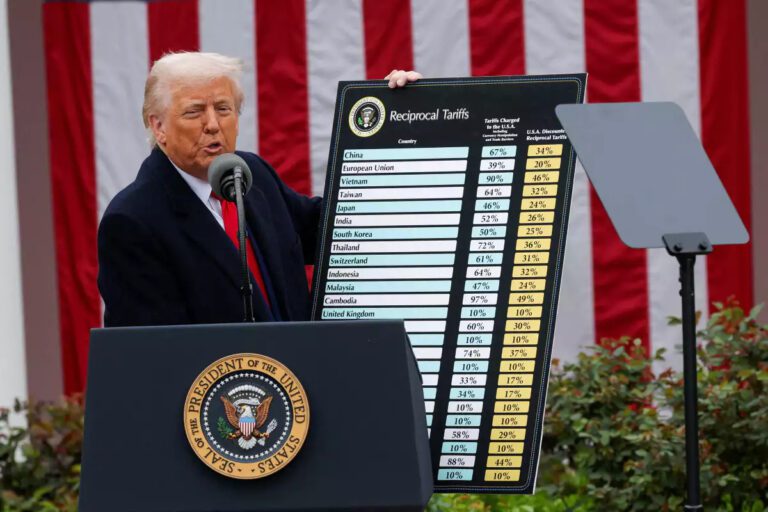🎧 Listen to This Article
TEL AVIV – The U.S. has imposed a 17% tariff on Israeli exports as part of President Donald Trump’s sweeping new trade policy, a move that could significantly impact Israel’s economy. With the U.S. being Israel’s largest trading partner alongside the EU, the tariff threatens key sectors, including defense and high-tech industries.
Global Economic Shockwaves
The new tariffs, announced Wednesday, have sent ripples through financial markets, with the highest rates targeting Cambodia (49%), Laos (48%), Vietnam (46%), Burma (44%), and Sri Lanka (44%). While global stock markets reacted sharply, full investor sentiment remains uncertain as futures trading has yet to commence.
For Israel, the 17% tariff on exports to the U.S. poses a substantial economic challenge. Industries already facing high interest rates and domestic political instability could experience further financial strain.
Key Industries at Risk
- Defense Sector: Many Israeli defense companies rely on U.S. contracts, and higher costs could reduce competitiveness.
- High-Tech Industry: Already struggling with funding shortages, Israeli tech firms may face further capital flight.
- Manufacturing & Exports: Israeli exporters will need to decide whether to absorb the extra costs or pass them on to U.S. consumers.
The Rise of ‘Transfer Pricing’
With higher tariffs, Israeli companies may turn to transfer pricing, a strategy where businesses establish U.S.-based entities to sell goods at lower prices domestically before completing transactions at full market value. While common, this tax planning method risks scrutiny from both Israeli and American regulators and could trigger compliance crackdowns.
Tax experts caution that while Israeli firms may be familiar with their own tax code, U.S. tax authorities have stricter anti-avoidance rules that could classify aggressive transfer pricing as illegitimate tax planning. Companies considering this route must proceed carefully to avoid penalties or legal consequences.
What’s Next?
Israeli businesses will need to adapt quickly. Industry leaders and policymakers are expected to respond in the coming days, weighing potential countermeasures or diplomatic interventions.
As the global trade landscape shifts, firms operating between Israel and the U.S. should closely monitor tax regulations, pricing strategies, and potential legislative changes to mitigate financial risks.
For further details, clarification, contributions, or any concerns regarding this article, please contact us at editorial@tax.news. We value your feedback and are committed to providing accurate and timely information. Please note that our privacy policy will handle all inquiries



